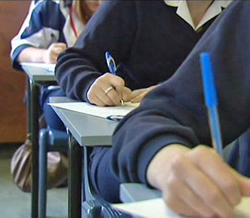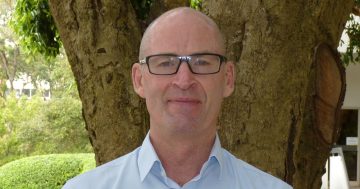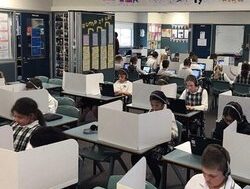 Academic results for literacy and numeracy have been flat for over a decade according to a new report from the Productivity Commission, which also found that despite the outcome, spending on schools had increased.
Academic results for literacy and numeracy have been flat for over a decade according to a new report from the Productivity Commission, which also found that despite the outcome, spending on schools had increased.
Deputy Chair of the Commission, Alex Robson said the fifth interim report of the Commission’s 5-year Productivity Inquiry: From learning to growth outlined ways Governments could improve education outcomes to support future productivity.
“High-quality school and tertiary education systems are vital for a productive workforce,” Dr Robson said.
“But despite increased investment in schools, foundational skills such as writing and numeracy have stagnated,” he said.
“Employment rates for university and Vocational Education and Training (VET) graduates have also fallen in recent years.”
Dr Robson said overall education outcomes were relatively good, but the Commission was seeing some concerning declines.
He said these declines, combined with a shift in the nature of skills demanded by Australian businesses, meant it was timely to examine where improvements could be made to boost productivity.
“With Australia now well and truly a service economy, demand for non-routine skills is at an all-time high,” he said.
“This means a strong foundation from schooling is even more important than for past generations.
“And we need more innovation, competition and choice in our tertiary education sector.”
The Commission’s Deputy Chair said the Report found schools should focus on gathering and spreading evidence to improve the quality of teaching.
He said this could include freeing up teachers to spend more time in the classroom and adopting proven technology or new ways of schooling to meet the needs of staff and students.
“For VET and higher education, the question is not just what to teach, but how to teach it.”
Dr Robson said it could also be beneficial to explore current funding structures that distorted the choices of students in favour of universities over VET, limited competition between providers, and restricted the number of available student places.
“There is some urgency in addressing these challenges,” he said.
“The population of post-school students is expected to increase by 20 per cent over the decade to 2030.
“This is our future workforce.”
Dr Robson said the solution wasn’t just simply to provide more places, Australia’s education system also needed to ensure that it could deliver improved and relevant skills.
The Productivity Commission’s 119-page Interim Report can be accessed at this PS News link.











